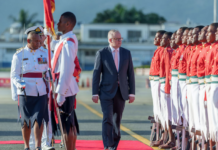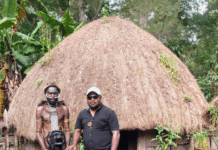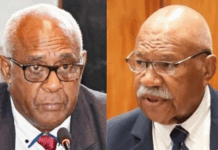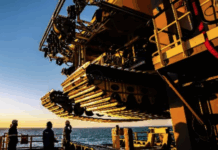What if your country was swallowed by the sea? Kiribati (pop. 100,000) is one of the first countries that must confront the main existential dilemma of our time – imminent annihilation from sea-level rise. This documentary, Anote’s Ark, has been blamed by Kiribati immigration officials for their block on foreign journalists.
Pacific Media Watch Newsdesk
A controversial climate change documentary showing at the Sundance Film Festival has been blamed for the Kiribati government blocking journalists from entering the country to report on the fatal sinking of a passenger ferry.
The MV Butiraoi broke in half and sank three weeks ago, with more than 90 people missing and presumed dead.
Newshub Pacific affairs correspondent Michael Morrah said his passport was confiscated when he and other Newshub staff landed in the country on Monday.
LISTEN: NZ TV crew banned from reporting Kiribati ferry disaster – RNZ
They were told they were no longer to report on the sinking, because their reporting could impact on the country’s own investigation into the tragedy.
Australian Broadcasting Corporation journalists were also reportedly barred from travelling to Kiribati to report on the disaster.
According to Morrah, “the government’s recent hostility towards international press coverage appears to be rooted in the screening of a documentary at the Sundance Film Festival, Anote’s Ark.
“The country’s previous President, Anote Tong, was the subject of the film, which focused on climate change in Kiribati.
“In the doco, he spoke about why he had purchased land in Fiji and the serious and imminent threat of rising seas to the future of his people.
“But his views don’t gel with the current President Taneti Mamau. In November Mamau said the idea of Kiribati sinking and becoming a deserted nation was ‘misleading and pessimistic’.”












































